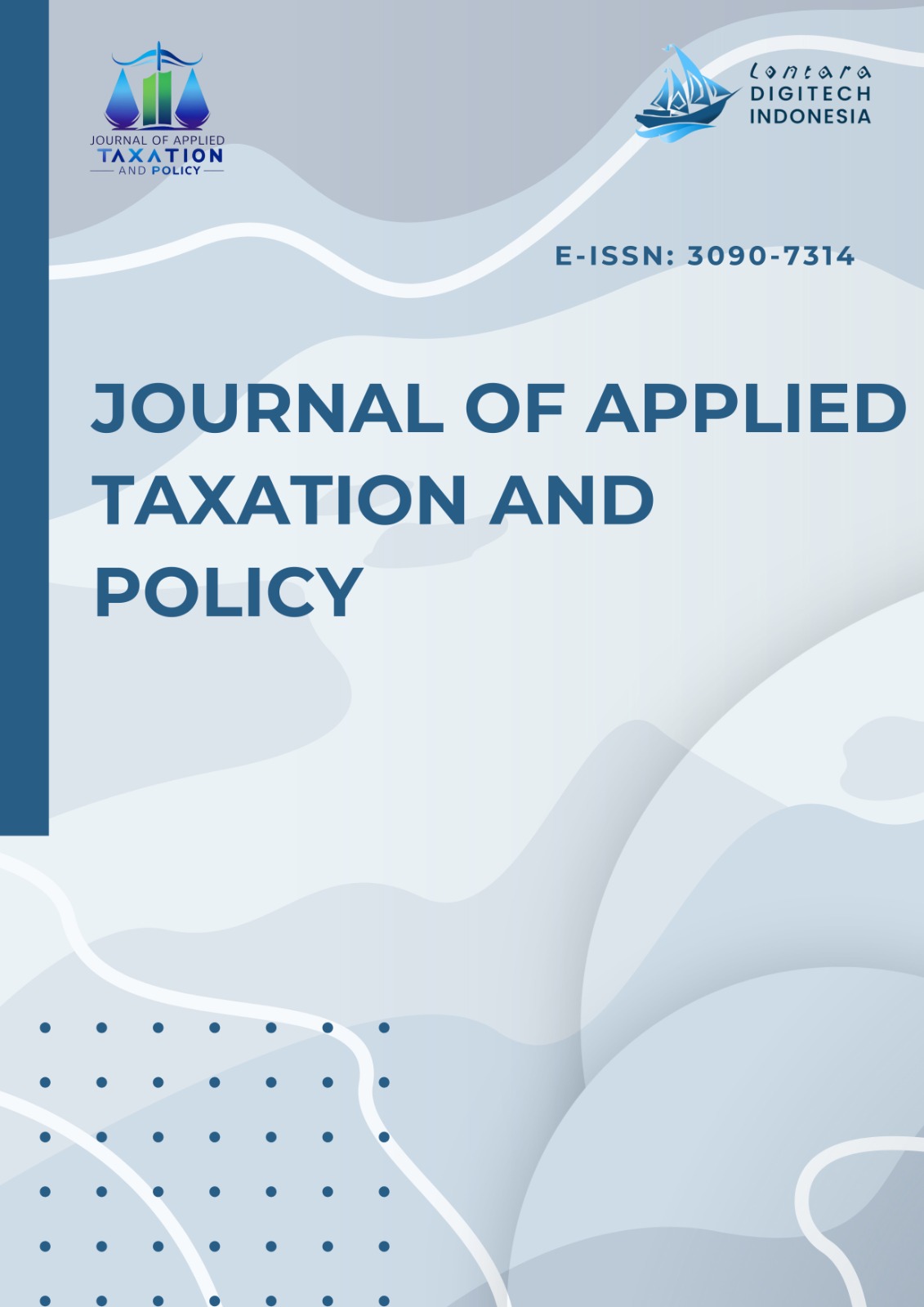 |
Peer Review Process
Peer Review Process
All manuscripts submitted to the Journal of Applied Taxation and Policy (JATAP) undergo an initial editorial screening to ensure alignment with the journal’s scope, adherence to formatting guidelines, linguistic clarity, and compliance with ethical standards including plagiarism detection (using iThenticate).
Manuscripts that pass this initial evaluation are forwarded to at least two reviewers through a double-blind peer review process, where the identities of both authors and reviewers are concealed to ensure objectivity.
Reviewers are assigned based on subject matter expertise and are responsible for evaluating the manuscript's scholarly merit, including originality, significance, methodological rigor, clarity of presentation, and validity of references. Reviewers may recommend acceptance, revision (minor or major), or rejection.
The editorial team will make the final decision on the manuscript's acceptance based on reviewers’ recommendations, with additional considerations for contribution to the field of taxation and policy.
Accepted manuscripts will proceed through the stages of copyediting, layout editing, and final proofreading prior to publication.
Peer Review Policies
Journal of Applied Taxation and Policy utilizes a fully electronic submission and peer review system. The peer review policy ensures the integrity, fairness, and quality of the review process, which is central to maintaining high academic standards.
1. Manuscript Selection
Manuscripts are selected for peer review based on:
-
Relevance to taxation and fiscal policy issues, especially in applied contexts;
-
Scientific quality, originality, and potential policy impact;
-
Adherence to journal format and ethical publication practices.
2. Reviewer Selection
Reviewers are selected by the editorial team based on:
-
Subject matter expertise;
-
Absence of conflicts of interest;
-
Prior review experience and academic integrity.
Each manuscript is typically reviewed by at least two independent reviewers. A third reviewer may be invited if additional expertise is required or in the case of conflicting recommendations.
3. Review Procedure
The review process evaluates:
-
Theoretical contribution and novelty;
-
Robustness of methodology and data analysis;
-
Clarity and coherence of argumentation;
-
Relevance of policy implications and conclusions;
-
Appropriateness of references and citation integrity.
All correspondence occurs through the journal’s online platform. Authors are informed of reviewer comments and provided with the opportunity to revise and respond accordingly.
4. Confidentiality and Ethics
JATAP applies a double-blind review process to ensure impartiality. All submitted manuscripts and review communications are treated confidentially.
5. Conflict of Interest
Both authors and reviewers are required to disclose any potential conflicts of interest. The editor ensures that decisions are made free of bias and in accordance with ethical publishing standards.
The editorial team is committed to supporting authors and reviewers throughout the process to ensure a rigorous and transparent scholarly publication environment.














